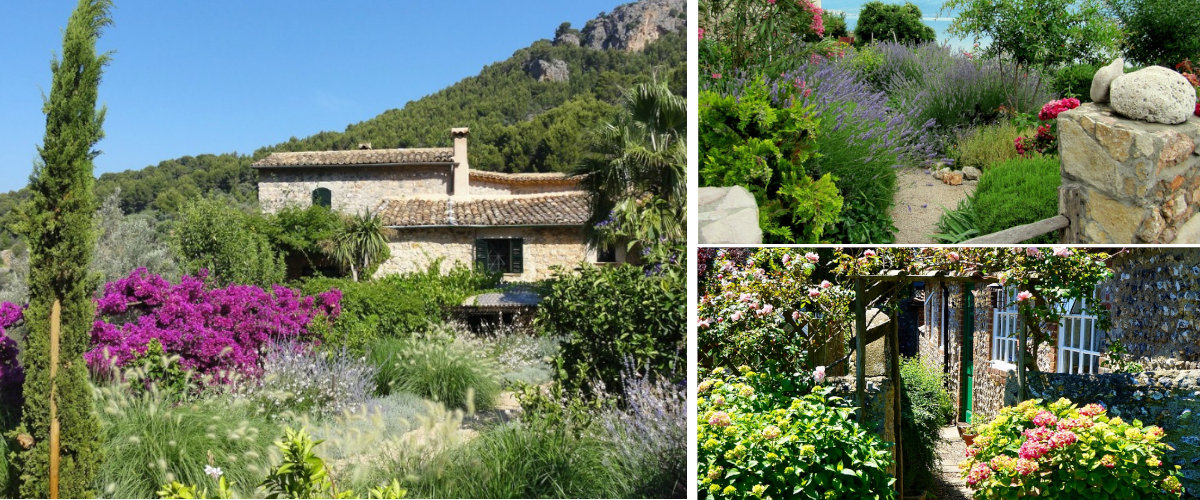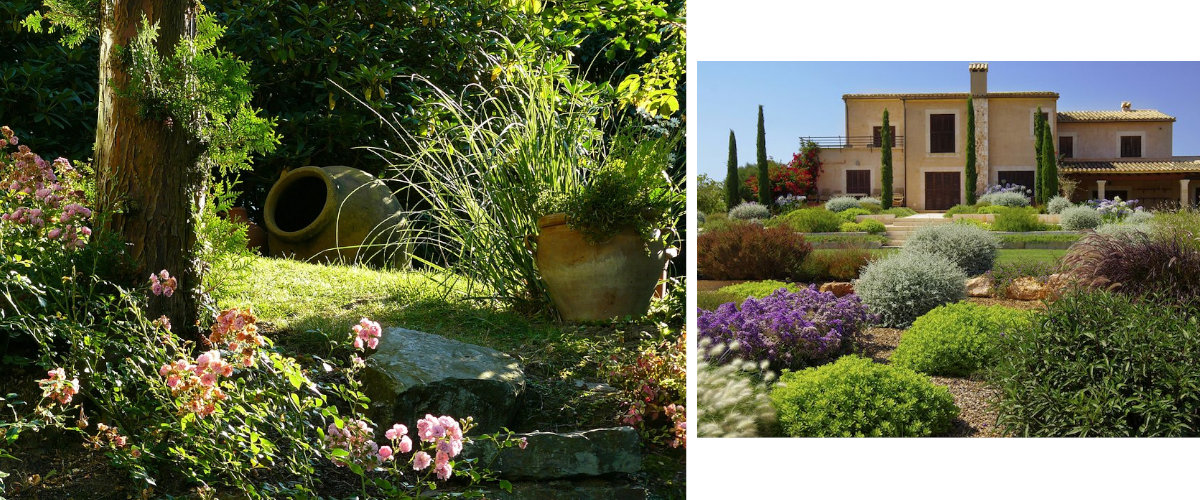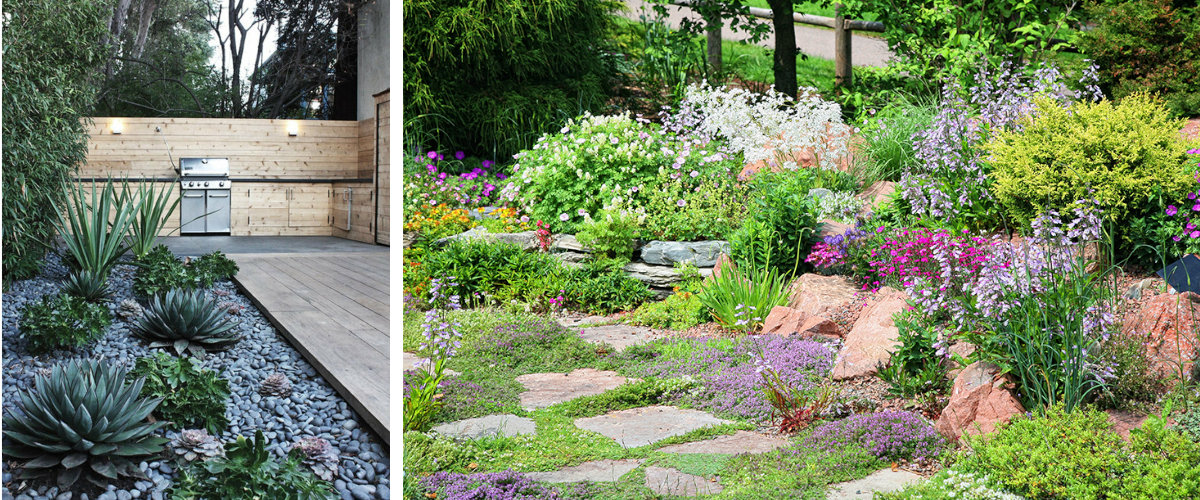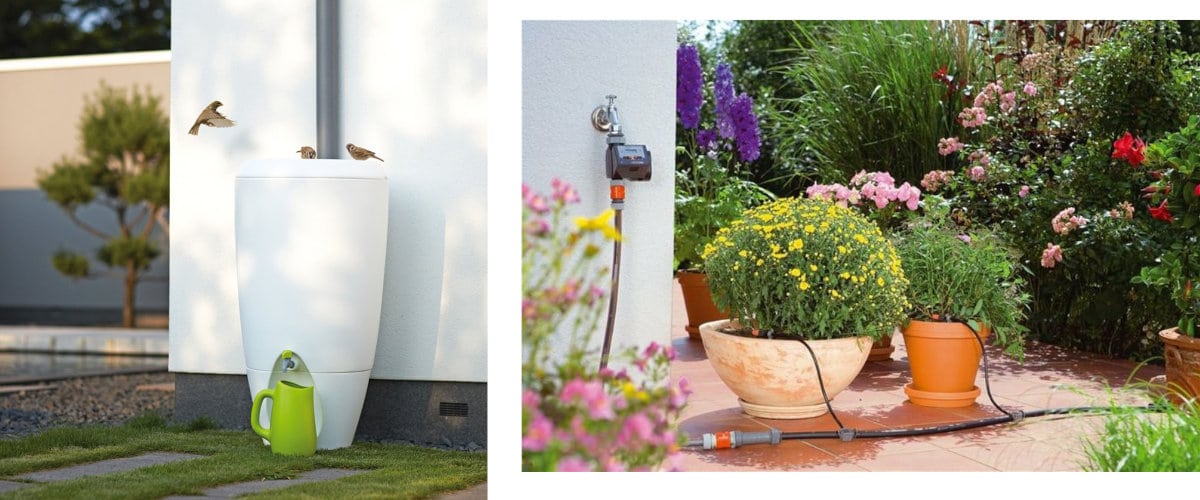
El sustainable garden It is one that respects the natural cycles and biodiversity of each region, and also makes responsible use of resources to survive. They are gardens that are characterized by their low maintenance, which implies lower costs. All advantages.
Do you want to have a sustainable garden? In Bezzia We share with you six green tips that will help you achieve it. Bet for native or naturalized plants, reducing water consumption and avoiding the use of pesticides are among them. If you want to know all the keys, keep reading!
Include native species
All the implanted plant species As they are not adapted to the characteristics of the region, they require more care and are affected in a higher percentage by pests than native varieties. Why then do we continue to use some to the detriment of others?
Adapted to the region's own soil and climate, the autochthonous varieties significantly reduce costs of maintenance. At the same time, they are more resistant to pests and attract useful fauna, that is, pollinators. And they promote biodiversity, which allows the garden to be more resistant to the negative effects of a flood or drought.
Minimize grass areas or replace grass with plants carpets or grass meadows it will significantly reduce water consumption. Did you know that the water needs of a lawn in our climate are about 6 liters per m2 / day while other native upholstery vegetation may need less than one liter?
Group the species according to needs
The grouping of species according to their different water needs it allows to optimize the irrigation that is destined to each one of the plants. And design a slope that conducts rainwater to specific garden areas in which we condense these plants, a smart way to design the garden
Decorate with stones and gravel
Our climate does not allow to resort to extensive lawns of grass or an excessive number of plants if we aspire to have a sustainable garden. But we can replace this grass with other ornamental alternatives such as the arid, the stones and wood to complete the design of the outer space.
Make responsible use of water
Collect and use the rain water To water the plants beyond contributing to the sustainability of the space, it will prevent the pH of the soil from altering and slowing down the growth of beneficial microorganisms in the soil. To do this, you will only have to install collection systems that take advantage of the water in the gutters.
Modern technology can help you too. Theirrigation systems drip spot in combination with devices like programmers or rain sensors that automatically deactivate irrigation in case of rainfall, can help you save a large amount of water. Water early to avoid evaporation
In addition, in order to maintain humidity, it is advisable to use a mantle or padding on the plantation surface such as pine bark. You will save water and avoid the proliferation of weeds.
Compost
Compost serves as organic fertilizer and helps to improve the terrain; it allows plants to better absorb food and promotes better biological activity in the soil. That being the case, why use chemical fertilizers when you can make your own 100% natural compost with organic household waste?
El 50% of the garbage that is generated in the average home is compostable. And there are many waste from the garden that you can also take advantage of: leaves, grass, vegetables, shredded pruned branches, sawdust, etc. By putting in place a good waste sorting system and composting organic matter, you're not just tapping into a ton of valuable nutrients that would otherwise end up in a landfill. You will also be greatly reducing your garbage volumes.
Reduce the use of chemicals
Are you worried about the use of chemicals in your garden? Fertilizers and phytosanitary products are responsible for killing beneficial microorganisms that exist in the environment. They cause the plant to be nutritionally unbalanced and prone to pest attacks and damage from cold or heat. Instead the ideal is use compost, worm castings and other natural products. On the web you will find instructions to make natural fertilizers with banana peels, coffee grounds, nettle ...
Pesticides they can also be largely substituted. Against aphids, mealybugs and whiteflies, a very useful remedy is to spray the plants with 2 tablespoons of Fairy-type soap dissolved in one liter of water. Bicarbonate is also a great ally as a pesticide and fungicide; it is enough to dilute a tablespoon of bicarbonate in a liter of water to achieve a preventive remedy to maintain the health of our plants.



